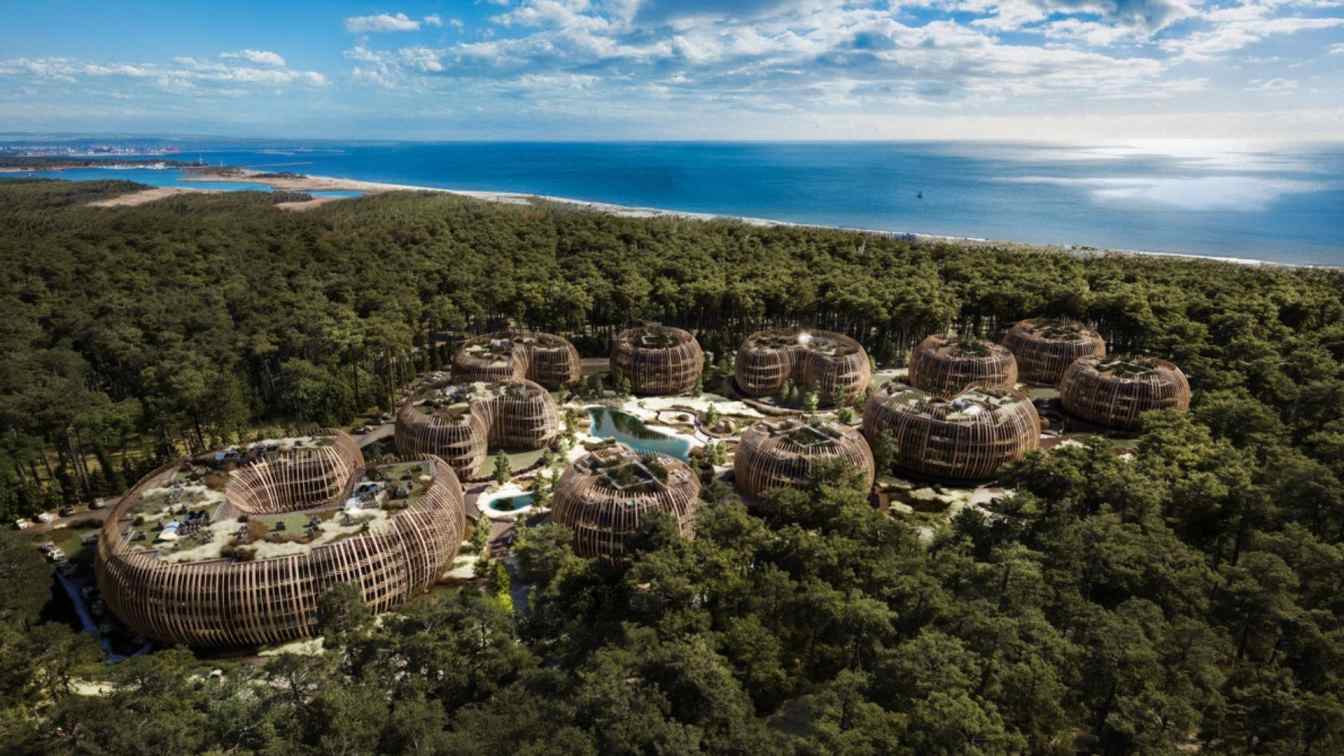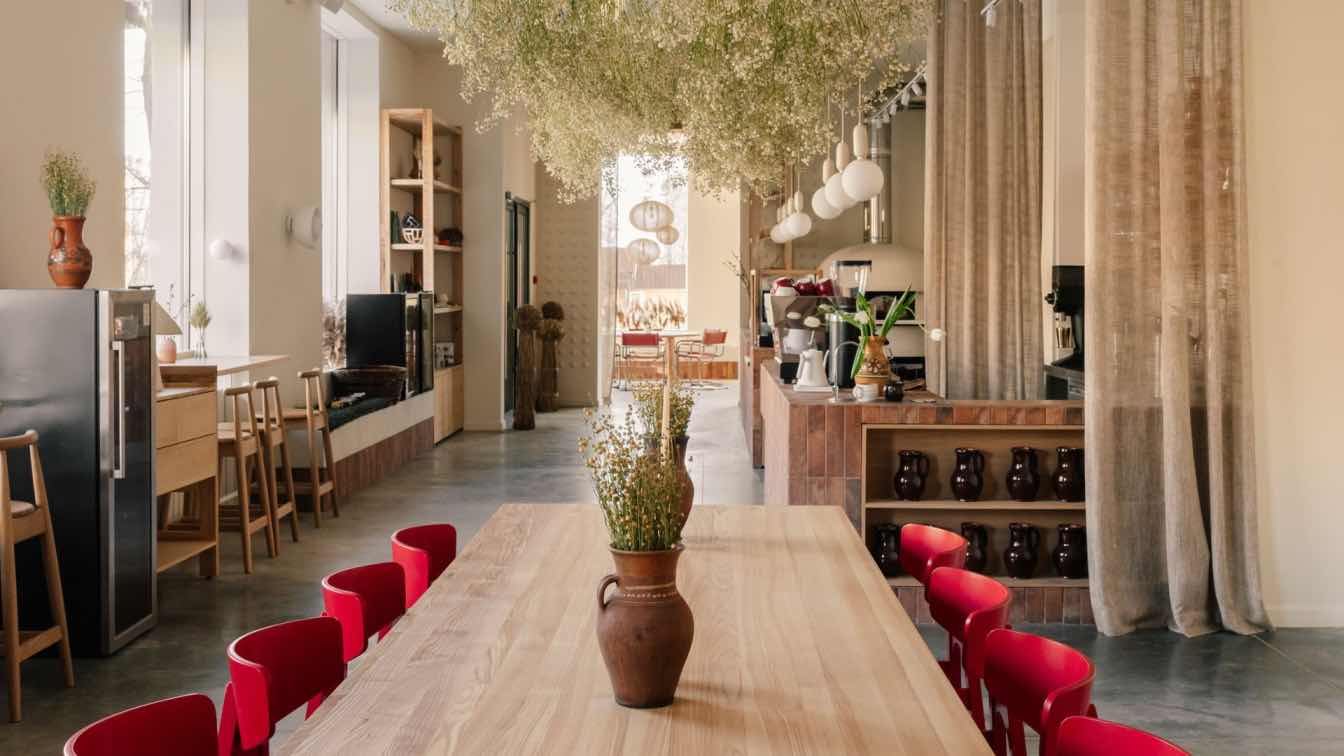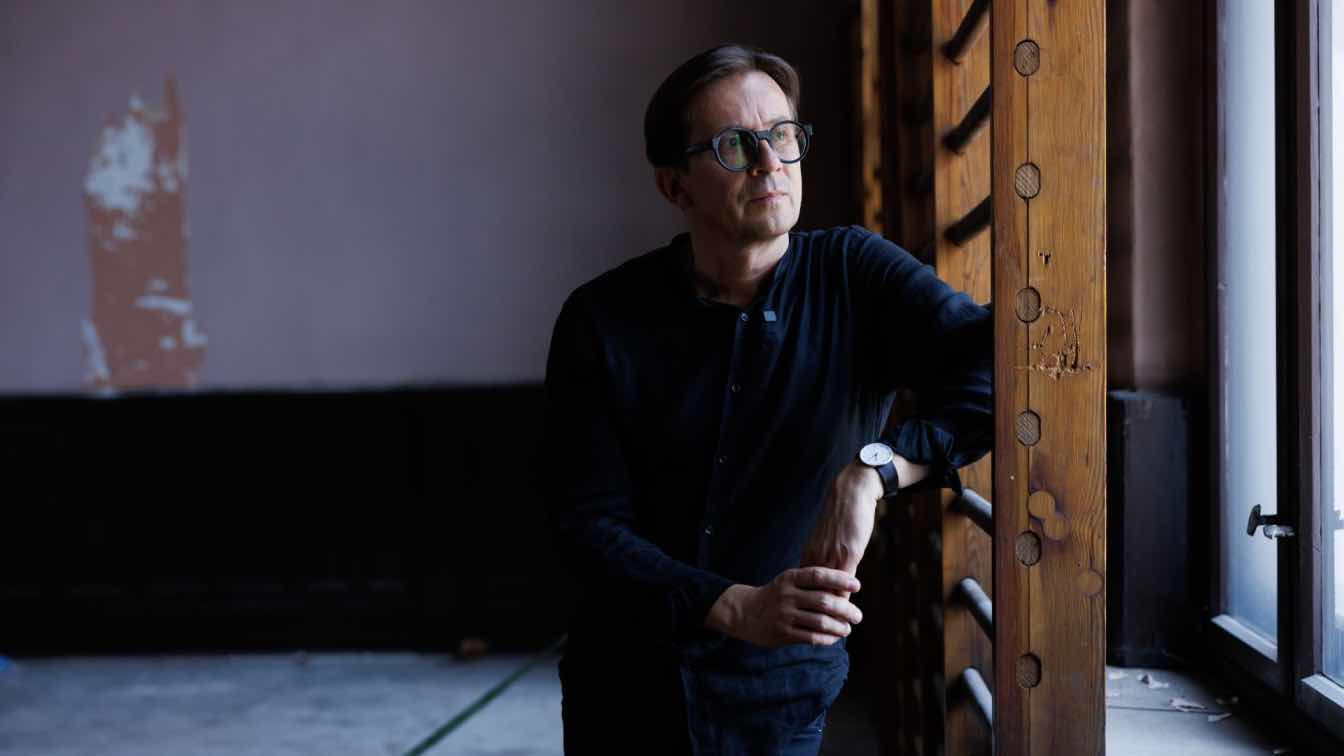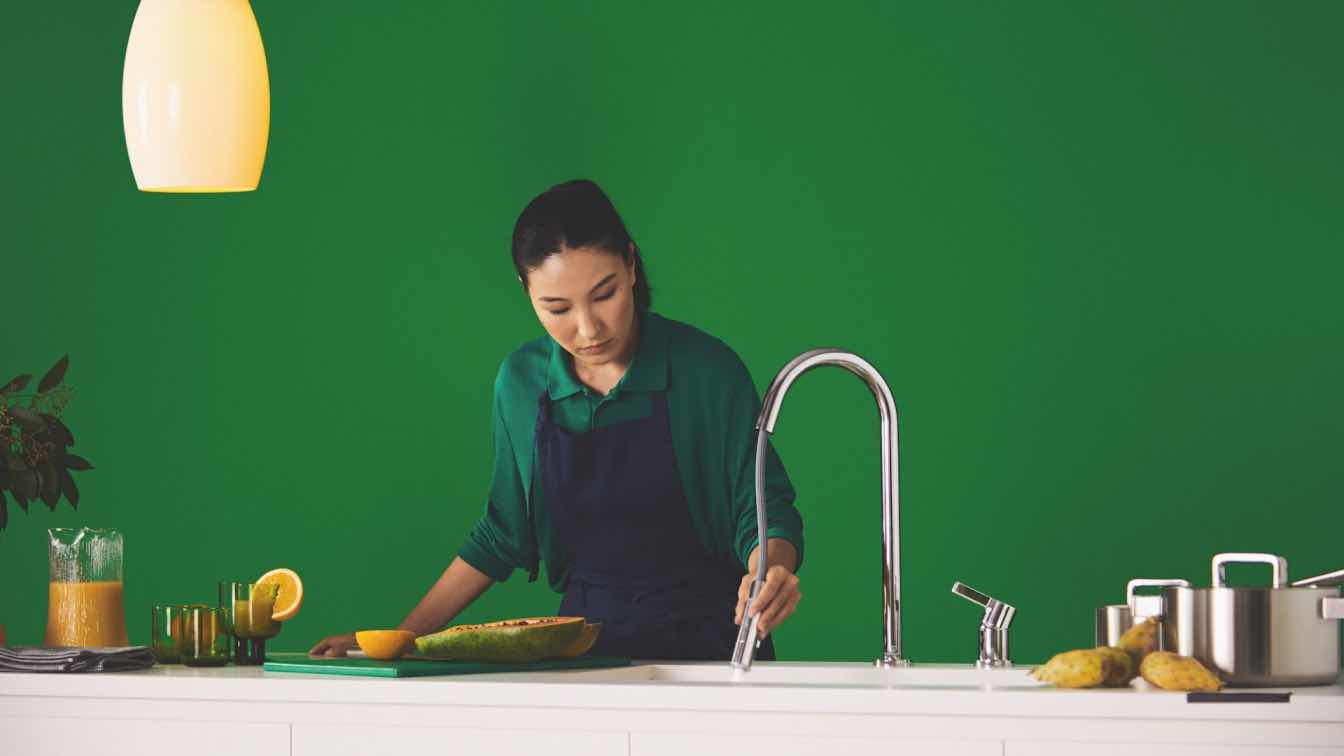"Architecture is not just a profession, it is a way of life,” says Polish architect Paulina Czurak-Czapiewska. On September 1, 2025, she joins the management board of Dekpol Deweloper. In this in-depth conversation, she reflects on her career path, the challenges and opportunities for women in architecture, and her vision for leadership in a male-dominated industry.
Although more and more women are being educated and working in the design industry, architecture – especially on a large scale – is still often perceived as a male-dominated field. What is your opinion on this?
Paulina Czurak-Czapiewska: It’s true – architecture, particularly large-scale architecture, is still heavily dominated by men. Just look at who leads the largest studios. In the vast majority, they are men. It is difficult for a woman to break through in this environment, especially if she doesn’t want to be just a designer, but also the owner of her own firm.
At the beginning of my career, I wasn’t aware of this. For the first seven or eight years I was so absorbed in work that I didn’t see the barriers. I blamed myself, wondering why it was harder for me to secure commissions, and I worked even harder. Only later did I realize that one of the main obstacles was simply the fact that I am a woman.
In practice, this meant I always had to be better prepared than my male colleagues. It was demanding, but it also had its good sides. It taught me discipline, professionalism, and strengthened my character. This profession requires tremendous determination and – symbolically speaking – “male energy.” Paradoxically, because women so often have to prove their worth, they frequently become even stronger and more resilient than many men in this industry.
Looking back, I see that this difficult path made me stronger. Today I can say that a woman who breaks through in such a demanding world gains exceptional strength and awareness of her own capabilities.

On the one hand, we observe the growing presence and influence of women in architecture, especially interior design. On the other hand, questions remain: to what extent does gender affect the perception of competence, leadership style, and career path?
Paulina Czurak-Czapiewska: I think architecture is no different from many other fields. Up to a certain point, a woman is taken seriously, but later, in order to maintain her position, she must demonstrate skills far exceeding what is expected of men. This does not apply only to architecture or construction; it is a problem present in practically all professional and social spheres.
That’s why this narrative about the “growing influence of women” is, in my view, somewhat media-driven. Of course, women are becoming more visible, but still not on equal terms. It is easier, from an image perspective, to talk about “resourceful and equal” women working in the industry than to acknowledge the real difficulties they face.
And the very fact that people talk about “women in architecture” – but never about “men in architecture” – is already a signal. It shows that women are still treated somewhat as an exception to the rule.

In one interview you pointed out that the quality of a project has no gender. And yet professional practice shows that women who run their own studios and carry out large-scale projects still often face prejudice or the diminishing of their achievements. What are your experiences?
Paulina Czurak-Czapiewska: I can confirm that. For the first seven or eight years of running my firm, I constantly had to prove that, despite being a woman, my studio had potential and could be trusted. This was a recurring problem. In meetings I would often hear questions like: “Can I speak with the owner of the company?” or “Will the owner be present at the next meeting?” These situations happened repeatedly and they harden you, changing you forever.
And what challenges arose later, when you were not only a designer but also the leader of a practice?
Paulina Czurak-Czapiewska: Exactly the same. No matter what stage of my career I was in – whether as an architect or as the owner of a firm – I was still seen first through the lens of my gender, and only later through the lens of professionalism. Fortunately, this has changed today, but it took more than thirteen years before I reached a position that men usually achieve much faster. However, thanks to that, I built a broad range of skills that now make my work much easier than it is for architects who didn’t have to go through that journey. A tough lesson, but one that pays off today.
During your career, have you noticed any change in attitudes towards women in the architecture and interior design industry? Do stereotypes still matter?
Paulina Czurak-Czapiewska: In interiors – yes, definitely. It’s an area largely dominated by women, and their strong presence is visible. But when it comes to large-scale architecture, especially projects above five or ten thousand square meters, nothing has changed. It still looks the same as before. Stories about equality in this sphere are, unfortunately, a myth.

So would you say that interiors are stereotypically assigned to women?
Paulina Czurak-Czapiewska: Yes, definitely. And that was my gateway into large-scale architecture. Thanks to interior projects I started to find my way in the business world, and at the same time I could show that I was capable of leading large architectural projects as well.
At the beginning I often corrected the designs of big architectural firms – improving solutions that already existed. For example, I was able to redesign a parking garage to fit an additional twenty spaces, or introduce structural changes to gain greater functionality within the same building footprint. These were concrete, technical improvements that proved I could do something better.
And that’s exactly how I had to earn trust. Not through spectacular top-down commissions, but by always being one step ahead – faster, more precise, more effective. That’s what my beginnings in large-scale architecture looked like. If someone had told me back then what kind of path I would have to walk, I don’t know if I would have chosen it.
I admit, even today when I talk about it, I still feel emotional. The narrative about how “women are doing so well” still exists, but in reality, we are often overlooked and undervalued. And that doesn’t apply only to architecture.

How do you try to break stereotypes through your work and attitude?
Paulina Czurak-Czapiewska: Today I no longer have to prove anything – it’s enough that I just work. But for eighty percent of my professional life, I had to prove that I could do something better. That was my everyday reality.
Many young women today dream of a career in architecture or design. At the same time, they often struggle with doubts: is this a space for them, will they be taken seriously, can they cope with the pressure and competition? What advice would you give them?
Paulina Czurak-Czapiewska: This may sound brutal, but my advice is: if you can, choose another profession. Architecture is extremely demanding and ungrateful. It’s not just a job, it’s a way of life. You really have to love what you do – otherwise, somewhere along the way, you’ll run out of fuel.
Someone once said beautifully that “architecture is not a profession, but a way of life” – and that’s the truth. If you want to be a serious architect, it’s not a nine-to-five job. In the beginning, it’s often seven days a week, from five in the morning until late at night. Most architecture firm owners I know live exactly like that.
Those who treat this profession “half seriously” have offices that run at half speed. If you really want to be an architect, you have to accept that it’s not just a profession – it’s a lifestyle choice. And you need to be prepared for that.

What qualities should one develop, and what should be avoided, to succeed in this profession?
Paulina Czurak-Czapiewska: Definitely psychology and the ability to communicate well. Building relationships is key in this job. Organization of work is also very important. And what to avoid? Arrogance and complacency. You should always strive to be better, because there is always room for improvement. I believe that if you have to tell people how good you are, it means you are not.
Architecture is a very competitive profession, and you have to be aware that you are being evaluated every day. It’s not like other professions where the result of your work is not subject to constant judgment. In architecture, everyone feels like an expert – everyone can give their opinion. And you need to be resilient to the fact that your skills are constantly being tested. There’s a saying – as a specialist you are only as good as your last project. Doctors, for example, are not stigmatized in this way.
I myself had to overcome this. I submitted competition projects and read very harsh comments. It wasn’t easy. But I learned that you need a healthy sense of self-worth that allows you to take criticism and not give up. It’s important to believe in your work, while also staying humble. Avoid arrogance and the belief that “I already know everything.”
You have to be able to say to yourself: “At this moment I did the best I could. I know it could be done better, but I believe that for now it is good.” That gives peace and strength.

Looking back, are there any decisions you consider crucial for your development?
Paulina Czurak-Czapiewska: Yes. One of the most important career decisions was taking on a hotel interior project – even though I had no prior experience in that field. It opened completely new doors in my career.
The second, equally important decision was making changes in my personal life. I had to put it in order so I could fully develop my professional life. Looking back, I consider this the most important decision in my career. Because one is inseparable from the other.
Architecture is not just a profession, it’s a way of life. Unfortunately, there is no division between “private life” and “professional life.” Everything runs in parallel and constantly intertwines.







BIO
Paulina Czurak-Czapiewska – architect, designer, and entrepreneur. She graduated from the Faculty of Architecture at Gdańsk University of Technology and the Institut Supérieur d’Architecture Intercommunal in Liège. Founder and head of the Sopot-based studio IDEOGRAF (2008–2025), she specialized in comprehensive large-scale and interior design projects – from hotels and office buildings to residential developments and public facilities.
Her professional experience covers both interior architecture and large-scale architectural projects. Her portfolio includes, among others, the Lake Hill Resort & Spa in Sosnówka, Nosalowy Park Hotel & Spa in Zakopane, Sol Marina in Gdańsk, and the Wutkowski headquarters – a contemporary glass office building integrated into the Pomeranian landscape. In 2025, she began work on a groundbreaking project on Sobieszewo Island: a complex of biophilic apartment-hotel pavilions arranged like bird nests among dunes and forests, designed in harmony with the surrounding nature.
As of September 1, 2025, Paulina Czurak-Czapiewska joins the management board of Dekpol Deweloper, one of the fastest-growing real estate development companies in Poland. Her appointment emphasizes the company’s strategic direction – a stronger focus on high-quality architecture, design, and execution standards.





